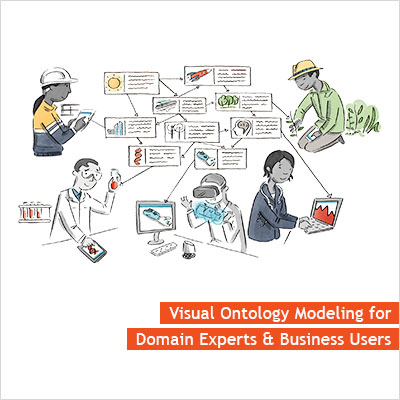Semantic Knowledge Graphs from Human Remains - Modeling osteological research data from biological anthropology
This blog post is co-authored by Felix Engel and Stefan Schlager. Felix and Stefan work for the department of Biological Anthropology at the University of Freiburg where they lead the development of AnthroGraph – an application that researchers can use to model anthropological data as knowledge graphs and intuitively explore, visualize and find information. In this guest post for the metaphacts blog, they explain how metaphactory was used as the development framework for AnthroGraph and how the resulting application can support the standardization of research data and the creation of reliable, curated and reusable collections of osteological research, ultimately allowing researchers to collaborate across disciplines and perform large-scale analyses.
Vocabulary management for domain experts and business users with metaphactory
This blog post introduces metaphactory's vocabulary management features, which extend the platform's knowledge modeling capabilities and support knowledge graph experts, domain experts and business users in creating and editing SKOS vocabularies to capture business-relevant terms. We'll start out by defining what vocabularies are and looking at the use cases they can serve. Then, we'll look at specific vocabulary management features supported in metaphactory. Finally, we'll look at a specific use case and integrate an existing thesaurus into metaphactory and use the platform's semantic structured search component to explore terms and to connect data through relations between entities.
Data in context with metaphactory's flexible data cataloging capabilities
Timely access to consumable, contextual, and actionable knowledge is crucial for any step in the decision-making process and the key enabler of decision intelligence. However, decision makers and decision support systems are still faced with the everlasting challenge that data relevant to and required for addressing their specific information needs is stored in distributed and database- or application-specific silos.
Visual Ontology Modeling for Domain Experts and Business Users with metaphactory
In my previous blog post on building Knowledge Graph-driven, FAIR Data platforms I discussed the importance of data and data-driven decisions, processes and tools in accelerating digital transformation. Knowledge Graphs have revolutionized the way data can be accessed and used, and have helped enterprises overcome the challenges posed by distributed silos where information is available to limited audiences, in heterogeneous formats, and represented according to different models. They have led to great advances in terms of data integration, interoperability and accessibility, and have allowed companies to tap into the full potential of their data assets and transform data into valuable and actionable knowledge.




